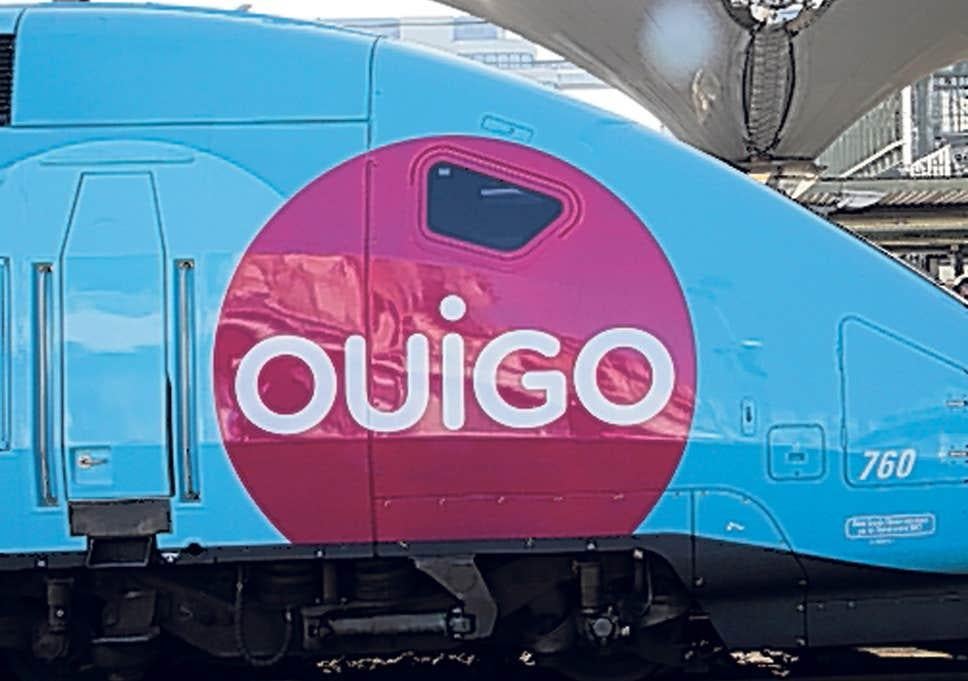Can high-speed, low-cost train travel work in France?
The Man Who Pays His Way: France has a version of Ryanair on rails

Two weeks from now, at 09.38 on 6 July, a double-deck high-speed train will escape from the joyless gloom of Montparnasse station in Paris to make the maiden voyage of the Ouigo brand to Toulouse.
Five hours later, hundreds of passengers will arrive in the much more agreeable surroundings of Matabiau station, the city’s handsome rail hub. They will be happy on two counts: they are in the sunny southwest of France, and they will have paid significantly less than the usual fare on French Railways (SNCF) for a journey of around 450 miles.
Looking two weeks ahead, the fare with Ouigo, the low-cost subsidiary of SNCF, is €65 (£58) – barely half the usual price between the cities.
You might imagine that anything that cut the cost of rail travel would be welcomed by a leading proponent of travelling by train in Europe: Mark Smith, founder of the Seat61.com international rail website.
He campaigns energetically to persuade travellers to move from air and road to rail. But he is unimpressed with Ouigo.
“People like train travel because it is so much less stressful than travel by budget airline,” he says. “So applying all the things people hate about budget airlines to a train service, unnecessarily, can’t be good.”
As with no-frills airlines, cheap rail travel in France involves a series of hurdles, starting with booking online. You are supposed to turn up at least half-an-hour before departure, as with Eurostar, but there is no security more passport check to go through. Its real purpose, suspects Smith, is: “Discouraging SNCF’s existing clientele from trading down to Ouigo.”
Anyone hoping to travel on Ouigo with an Interrail pass will have as much luck as they would were they to bowl up at a Ryanair desk with the same document. And there are no guarantees on connections to other trains (or planes).
Strict baggage checks are imposed, with a size limit that is less than British Airways’ cabin luggage allowance. Extra cases cost €5 booked in advance, or €20 at the station.
A charge of €2 applies for passengers who want to plug a laptop or phone into the on-board mains. Ouigo says: “C’est le prix d’un café!”
Talking of coffee: you won’t be buying any onboard. One big difference from budget airlines is the absence of any ambitiously priced food or drink, even on the five-hour ride between Paris and Toulouse. (No scratchcards, either.)
Smith warns particularly of the middle seat of the three-abreast row downstairs. “These seats have no centre armrests so can get quite cosy.”
But he is looking at Ouigo from a professional, pan-European perspective. For a different view, I sought some comments from travellers who use the cheap trains and work in an international organisation.
One British traveller describes Ouigo as: “Very much reminiscent of the unpleasant aspects of the Ryanair experience. Queueing in station, scrum to get scanned and through gates, no coffee bar on train.”
Another Brit reinforces the budget airline resonance: “Once I felt really sorry for a family who weren’t allowed to board a train because they’d arrived after the cut-off time, even though the train was still at the platform.”
“Limited luggage, specific times, but attractive prices,” says one French respondent. Another adds: “I don’t think that there has been a huge drop in quality of service, comfort or punctuality.”
An Irish passenger says: “TGV is one of the country’s great, great brands. They should do everything to hold onto it.”
You can expect more such trains across Europe, as “open-access” operators start competing with incumbents. Ouigo’s moves might be viewed kindly as gaining experience ahead of competition, or unkindly as the rail equivalent of a land grab to keep rivals at bay.
Meanwhile, Smith says: “It’ll happen next in Spain, with Renfe’s low-cost subsidiary, Eva.
“I hope these will be additional trains, not, as with the latest tranche of Ouigo services, created by downgrading existing ‘proper’ trains.”
You could call it third-class travel. But a French traveller sums up the future of high-speed, low-cost rail most succinctly: “The price difference is bigger than the comfort gap.”
Subscribe to Independent Premium to bookmark this article
Want to bookmark your favourite articles and stories to read or reference later? Start your Independent Premium subscription today.

Join our commenting forum
Join thought-provoking conversations, follow other Independent readers and see their replies